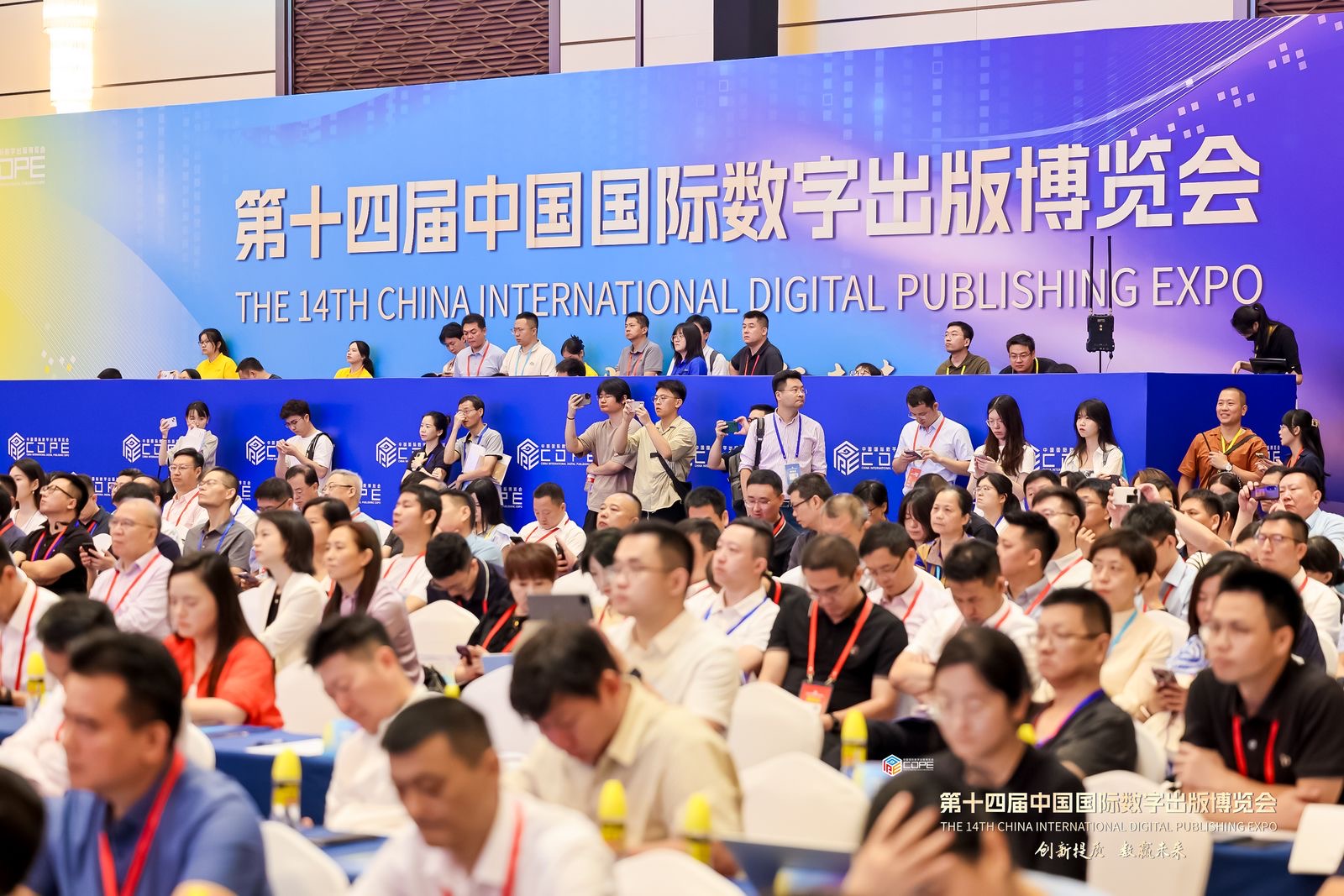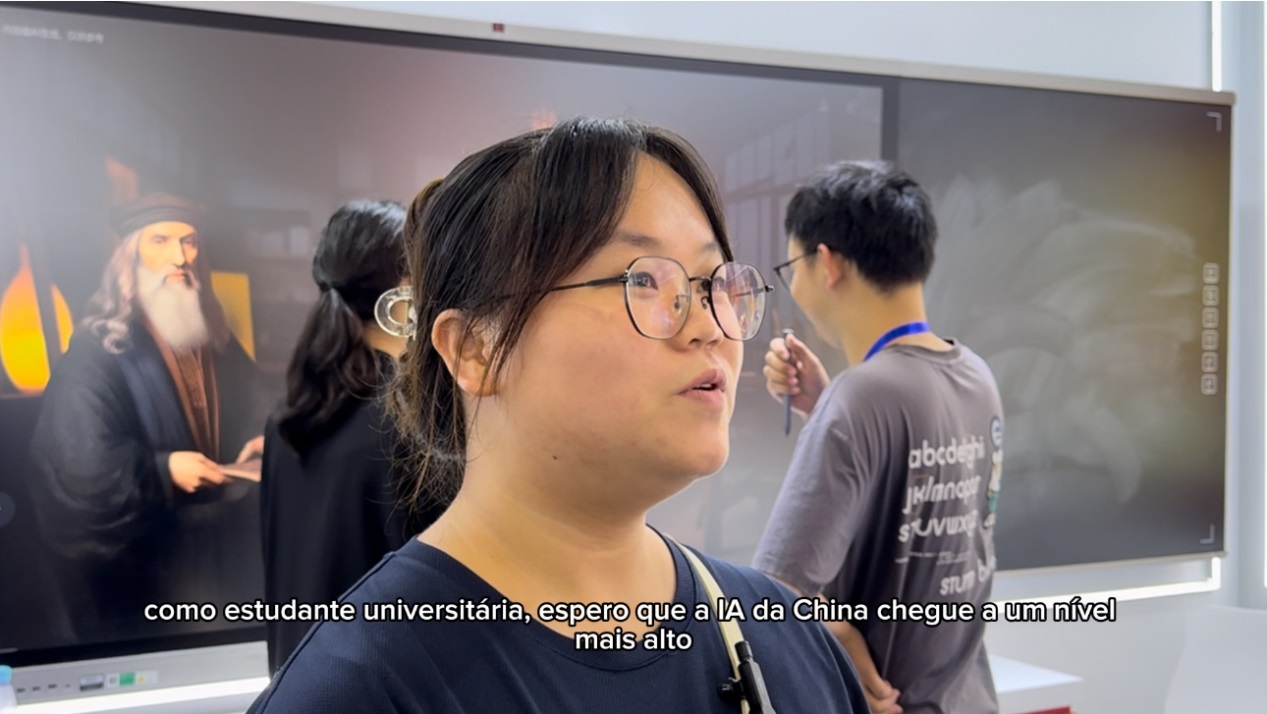
By Filipe Porto
I recently had the opportunity to attend the 14th China International Digital Publishing Expo, held from September 20 to 22 in Haikou, Hainan Province. This event, which marked its international debut, was announced by the provincial government authorities during the 30th Beijing International Book Fair.
Reproduction: personal archive
The Expo attracted a wide range of publishers and thinkers, with a significant focus on Artificial Intelligence (AI). This was not because it was an AI-only exhibition, but because China has embraced this technology with enthusiasm and determination. Themed “Innovation for Quality Improvement: Empowering Industries to Win the Future with Digitalization,” the expo presented a comprehensive overview of the digital publishing industry, including exhibitions, keynote and specialized forums, and a variety of interactive activities.
This year’s discussions focused on topics such as technology empowerment, industry innovation, online literature creation and data resource development. The event covered the entire supply chain from digital product creation to operation and distribution, including e-books, audiobooks and online literature. It also featured a dedicated space for international exhibitors and introduced initiatives such as the China Digital Publishing Forum and the Digital Publishing Creative Workshop.
Although I have heard a lot about the advances in AI in various parts of the world, I have never been so impressed with the technological capacity, the clarity in explaining how it works and the practical implementation that I witnessed at the exhibition.
Wang Qing, chairman of the Central China Publishing and Media Investment Holding Group, stressed the importance of innovation: “Just like in the global phenomenon of the Wukong game, where the monkey Wukong is the chosen hero, we should act as the chosen ones in the areas of publishing innovation.” He warned that reading books is no longer the main source of information, and interest in physical books has been declining. “We risk being left behind if we do not adapt to new technologies,” Wang said.
Books will always be a source of knowledge for society, but digital publishing brings a richer and more dynamic narrative. This approach can attract many to the world of knowledge. Despite legitimate concerns about copyright, the adoption and implementation of AI is receiving much more energy than I have ever seen. During the event, I explored several Chinese AI models that are rarely discussed outside the country. China is quickly discovering ways to use AI to transform its industries.
One app that impressed me was “Learning to Strengthen the Country,” which offers a selection of classics from literature to science, from Confucius to Freud, in an interactive way through avatars of the scholars. When interviewed by a college student from Haikou, Qiu Lingbo, she highlighted how this app is an effective way to attract the attention of middle and high school students.

Reproduction: personal archive
I enjoyed every moment of the exhibition – from the opportunity to “see China in action” and understand where the current focus of thought is, to enjoying the wonderful accommodation and generous hospitality in Haikou. This experience gave me a new perspective on the future of publishing. I believe we all need to step out of our comfort zone, and learning about innovations in this way is an effective way to do that.
Source: https://www.chinahoje.net/china-uma-experiencia-transformadora-em-hainan/

